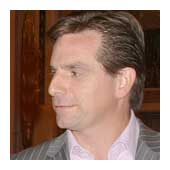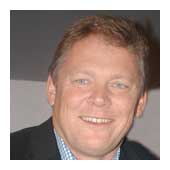Mixed response to First European Coffee Symposium
The beverage trade is divided over the performance of the first European Coffee Symposium, held in London by Allegra Strategies.
On the one side, it can be fairly reported that the event drew an impressive line-up of well-known speakers from the beverage trades, and an audience which also included many well-known faces from the industry.
On the other hand, there has been criticism that some of the speakers said very little of note, and that visitors from the catering trade who had gone to ‘gain a deeper understanding of the latest market trends', to quote from Allegra's own post-event survey, may not have learned a great deal about the current state of the beverage industry.
Indeed, although all the speakers had a great deal of seniority and trade status behind them, they stopped well short of giving anything like a meaningful market insight, probably for fear of giving competitors any clues… and in some cases, turned to little more than sales presentations.
There were, however, some valuable points to be taken from the event.
The most admired high-street café brand, according to a recent Allegra report, is the Caffè Nero chain. The chain's director, Paul Ettinger (pictured above), had been asked to open the seminar by speaking about how his group had achieved success, and he stressed the importance of sticking to a business model, and not being tempted to join the crowd on whatever may be the business trend of the day.
This was endorsed by his chairman, Gerry Ford, who said that the Starbucks model, 'always to be on Main and Main', had caused some undisciplined trends on rents, whereas Caffè Nero had always opted for a different strategy and often did not have the most prime position. This is why, he added, in a clear dig at the world leader, he has never closed a store!
The appearance of Phillippe Sanchez, managing director of Starbucks in France, offered some entertainment. He displayed a fine sardonic sense of humour in explaining the challenges of imposing American corporate culture on a land of 47,000 cafés and a customer base which demands to smoke… and, he added to general laughter, with a national catering industry not generally recognized by its gifts in the art of customer service.
When he reached his serious point, it was to warn against being trapped by prejudices and assumptions about borders - everyone said that Starbucks would not work in France, but it now has 46 cafés, 800 staff, and a revenue of €36m. "Do not," warned Sanchez, "get trapped by any notions about borders."
Vicki Fuller, head of the McCafé chain in Germany, claimed that her brand has won genuine new customers for its owner - half of all McCafe customers are not existing McDonald's customers. Although it is big in Australia and in mainland Europe, the interesting if slightly puzzling nugget for her British audience was that she appears to have no plans to launch here in any big way.
What the consumer is really interested in is a good coffee at a fair price, he said - so put the ethical story over in a very simple, straightforward way, and don't baffle the consumer.
David Field, managing director of Nestlé Professional, was the first to be willing to give the audience an argument, demanding a greater appreciation of the value of soluble coffee… from an audience which came mainly from the 'speciality' side of the industry!
The barista-style coffee shop is only the visible face of the coffee trade, he argued - the soluble market is vast, and covers areas into which it is not practical for espresso-based coffee to be sold. He added that the range of soluble coffees now available would surprise everybody… sadly, nobody in the audience rose to the challenge and questioned him, because that would have been a debate genuinely well worth hearing.
Elaine Higginson of First Choice made a similar point. She was there to speak about advances in machine technology, and delivered a eulogy in support of automatic machines, telemetry, and machines which are low on energy consumption.
Again, nobody questioned her directly, except in a later panel discussion when Caffè Nero maintained that it would not give up on traditional espresso machines. This gave Elaine the chance to say that arguing automatically against traditional for the sake of it is not the point - the point is to choose what is right for the situation. "A good example is JD Wetherspoon," she said. "Expecting bar staff to clean out a traditional machine at midnight just isn't going to happen!"
It was sad that Tony Waters of Solo Cup turned in the most to-the-point presentation of the day, at a point when the audience was at its lowest and when the last two speakers had been told a little too pointedly to make it snappy following over-running by others.
He was on to talk about supply chain challenges and managed to completely avoid getting trapped in any of the usual clichés about 'relationships' - instead, he gave excellent examples of how to really challenge a supplier on product, on quality, on inventiveness, and on service.
And finally, he issued the best challenge of all - get your supplier to spend a day working on your site, facing your customers - then your supplier will understand your business and can serve you better. It will be intriguing to see if any caterers try it, if only to hear the response!
Barry Kither of Lavazza, who knew well in advance that he was sentenced to close the day, was in typically entertaining mood, talking about the diversity of European markets. The lesson is to take care of your brand, he told his audience.
"There's no point in concentrating on the coffee alone - even our Lavazza advertising doesn't have a great coffee emphasis. What you have to concentrate on is brand personality. Our angle is 'Italianity', and everyone knows what that means, and it's a card we play heavily. And as every other coffee brand pretends to be Italian, we have to emphasise it all the more.
"Your brand needs personality to survive. Don't leave it alone - keep saying it, and keep saying it!"
By Ian Boughton













